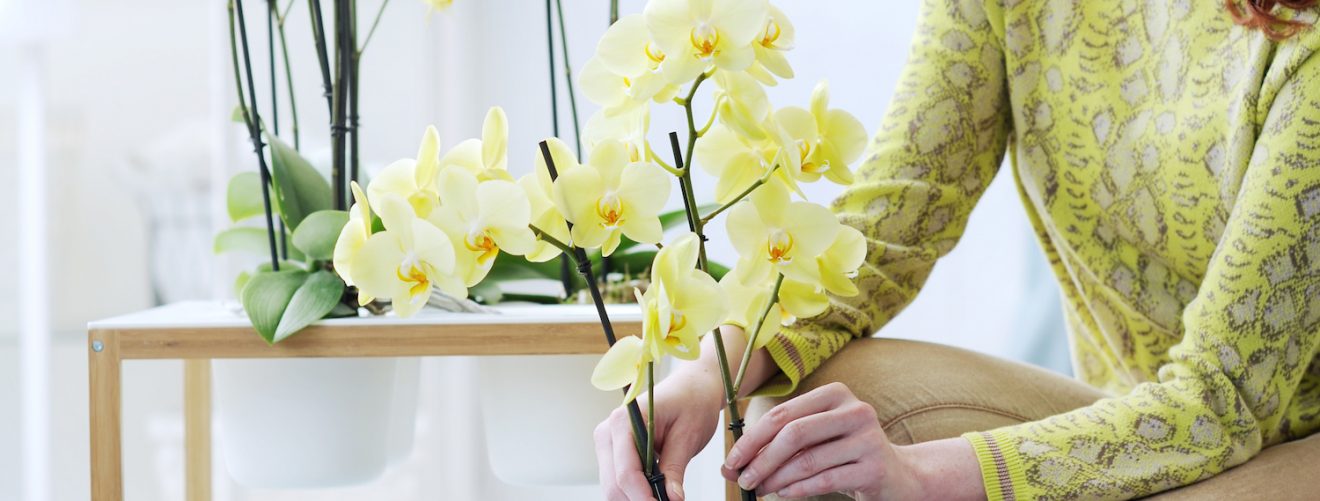The orchid is one of the most popular indoor potted plants. Bet you have one in your home as well! The orchid doesn’t need a lot of attention, but with the right care it can bloom for a long time. So it’s well worth your time! In this article we’ll give you some tips for the best orchid care, so you can fully enjoy your plant!
The best place to put your orchid
The orchid is a subtropical plant. Place it in a light spot, but not in direct sunlight because just like you the leaves can get sunburned too! 😉 The ideal room temperature for an orchid is between 20 and 22 degrees. So don’t place her close to the heating, and if you place her near a window make sure it’s insulated against drafts. Also, keep your orchid far from any fruits, as the ethylene gas emitted by ripening fruit can cause premature dropping of buds.
Watering your orchid
Orchids are not big water consumers. In summer it only needs to be watered once a week. In the winter this will be even less: once every ten days is sufficient. The best way to water your orchid is to use the kitchen sink. Water the plant for about 15 seconds, and allow it to drain for about 15 minutes. Is this too much of a hassle? Then pour a little bit of water in the pot of the plant, and not in the plant itself. Always be careful to avoid overwatering, you don’t want to drown your plant. 😉
In the winter you can occasionally spray your orchid with some water, to slightly increase the humidity. Don’t spray water on the flowers, because they can get brown spots.
Orchid fertilization
Fertilizing orchids properly will help them grow faster and bloom more. Providing fertilizer once a month during summer and once every two months during the winter, will ensure that your plant stays healthy and will grow larger each year.
Prune your orchid
If you want your orchid to bloom a second time, you can prune its stem at the end of its blooming cycle. This way you encourage the orchid to grow a new stem section, which may rebloom in a couple of months. Use a clean and sharp knife or garden clippers to prune the top portion of the stem.
Pruning the roots of your orchid can also help it grow healthier. Look for unhealthy roots that are brown and mushy, and prune them with a pair of scissors or garden clippers.
Did you know there are about 31.000 species of orchids in total? Check this page to have a look at some of the many variations.














